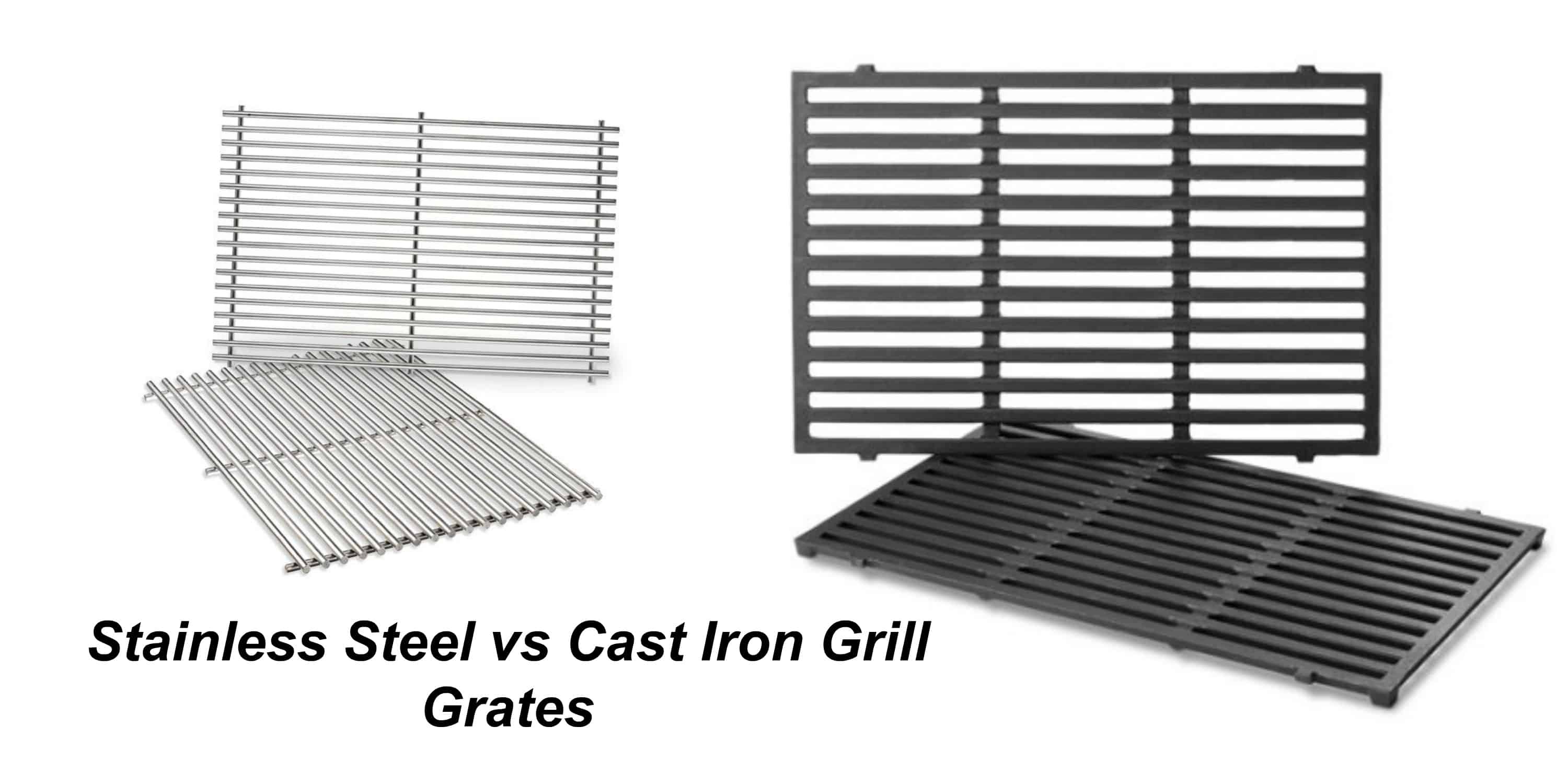
Cast Iron vs. Stainless Steel: The Ultimate Grill Showdown
As a seasoned grill enthusiast, I’ve had countless debates over the superiority of cast iron versus stainless steel grills. Both materials have their proponents, each extolling the virtues of their preferred choice. In this comprehensive guide, I’ll dive into the nitty-gritty, exploring the advantages and drawbacks of both options to help you make an informed decision.
Before we delve into the specifics, let’s briefly discuss the materials themselves. Cast iron is a ferrous metal alloy primarily comprised of iron and carbon. It excels in retaining heat, which translates into even cooking and searing capabilities. Stainless steel, on the other hand, is a corrosion-resistant alloy of iron, chromium, and nickel. It’s lauded for its durability and ease of maintenance.
Heat Retention and Distribution
Cast iron outshines stainless steel in terms of heat retention and distribution. Its dense nature allows it to absorb and retain heat effectively, providing consistent cooking temperatures throughout the grilling surface. This makes it ideal for searing meats, as it creates a flavorful crust while retaining the juicy interior.
Stainless steel, while not as efficient at heat retention, conducts heat relatively evenly. However, its lighter weight means it cools down faster, which can be a drawback for prolonged grilling sessions or when cooking larger cuts of meat.
Corrosion Resistance
Stainless steel’s greatest advantage lies in its superior corrosion resistance. The presence of chromium in its alloy forms a protective oxide layer that shields the surface from rust and deterioration. This makes it an excellent choice for outdoor use, as it withstands moisture and harsh weather conditions without degrading.
Cast iron, on the other hand, is prone to rust if not properly maintained. It requires regular seasoning, a process involving applying a layer of oil or grease to create a protective coating. Failure to season the grill can lead to corrosion and reduced performance.
Ease of Cleaning and Maintenance
Stainless steel grills are relatively easy to clean and maintain. Their smooth surface prevents food particles from sticking, allowing for quick cleanup with a grill brush or soapy water. They also withstand harsh chemicals, making it easier to remove stubborn stains.
Cast iron grills require more attention. Their rougher surface can trap food debris, making it more challenging to remove. They also require regular seasoning and rust prevention measures. However, with proper care, cast iron grills can last for decades, making them a worthwhile investment.
Latest Trends and Developments
The world of grilling is constantly evolving, with new innovations and trends emerging regularly. In recent years, there has been a growing popularity of hybrid grills that combine the benefits of both cast iron and stainless steel. These grills feature cast iron cooking grates for superior heat retention and searing capabilities, while the stainless steel frame provides corrosion resistance and durability.
Additionally, the advent of smart grills has brought advanced features such as temperature control, remote monitoring, and recipe integrations. These grills enhance the grilling experience by providing greater control and convenience.
Tips for Choosing the Right Grill
When selecting a grill, consider the following factors to ensure an optimal cooking experience:
- Cooking Style: Evaluate your preferred cooking methods. If you prioritize searing and high-heat grilling, cast iron may be a better choice. For more general-purpose grilling, stainless steel offers versatility.
- Maintenance Routine: Assess your time and effort dedicated to grill maintenance. If you prefer a low-maintenance option, stainless steel is ideal. However, if you’re willing to invest time in seasoning and care, cast iron can provide excellent grilling results.
Expert Advice for Optimal Grilling
To elevate your grilling game, follow these expert tips:
- Preheat Thoroughly: Always preheat your grill to the desired temperature before placing food on it. This ensures even cooking and prevents food from sticking.
- Clean Regularly: Regularly clean your grill, including the grates, burners, and exterior, to prevent food buildup and maintain its performance.
- Season Properly: If using a cast iron grill, apply a thin layer of oil after each use while it’s still warm. This will create a protective coating and prevent rust.
- Use the Right Tools: Invest in high-quality grilling tools, such as spatulas, tongs, and brushes, to make grilling more enjoyable and efficient.
FAQs
- Q: Which material is more durable?
A: Both cast iron and stainless steel are durable materials, but cast iron outlasts stainless steel with proper seasoning and care. - Q: Can I use cast iron grills indoors?
A: No, cast iron grills should only be used outdoors due to their propensity to rust when exposed to moisture. - Q: How do I prevent food from sticking to a cast iron grill?
A: Season your grill properly and ensure it’s sufficiently preheated before adding food. - Q: Can I use harsh chemicals to clean my stainless steel grill?
A: Yes, stainless steel is resistant to corrosion and can withstand harsh chemicals for effective cleaning.
Conclusion
Whether you choose a cast iron or stainless steel grill ultimately depends on your individual preferences, cooking style, and maintenance routine. Both materials offer unique advantages, from superior heat retention in cast iron to exceptional corrosion resistance in stainless steel. By weighing the factors discussed above, you can make an informed decision that will enhance your grilling experience for years to come.
Interested in learning more about the intricacies of grilling? Explore our comprehensive blog for additional tips, recipes, and insights to elevate your grilling mastery.

Image: qualitygrillparts.com

Image: www.pinterest.com.au
Cast Iron Grill | Barebones Cast Iron Jan 19, 2024Regular stainless steel grates are often thin and light. Stainless steel is lighter than cast iron and the grill grates are often thinner. Skillet makers add copper to the bottom to get it to cook evenly and predictably. This isn’t an option on grill grates, which are simple rods welded together to form a grate.